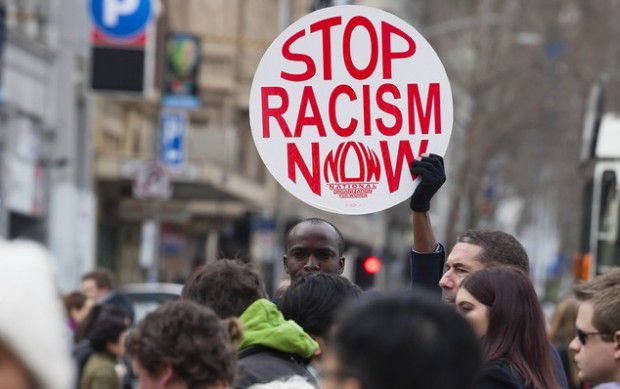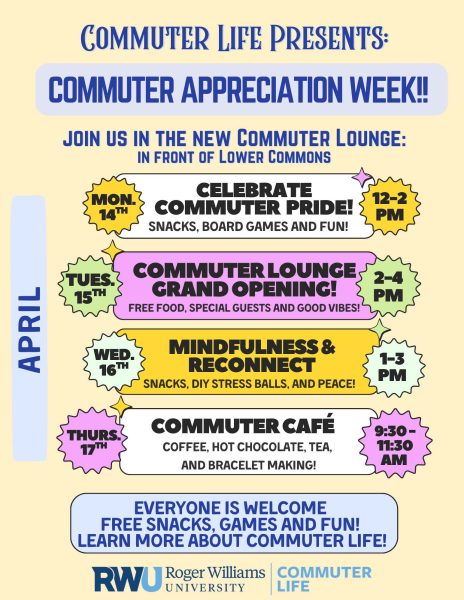To what degree are white people responsible for eliminating racism?
For various reasons, race seems to be one of the most difficult topics for people to talk about. Plagued by the fear of sounding ignorant or uneducated or, worst of all, racist, many people do their best to avoid talking about race.
Fortunately, the topic was unavoidable at the Socrates Café discussion on Nov. 29. The theme of the night, in relation to the university yearlong theme of “Talking About Race, Gender, and Power,” was: “To what degree is the white community responsible for the elimination of racism?”
Knowing full well the sensitivity of the topic, moderator Don Mays, the director of the Intercultural Center, made an effort to assuage concerns of students in the audience. He encouraged students to speak freely in the safe space, making it clear that students were sharing thoughts and opinions.
Mays started the conversation with a few exercises that aimed to reveal individual implicit biases, the importance of being exposed to more than just one particular way of thinking, and the reality that not everyone is given the same chances (privilege).
In response to the night’s guiding question, the general sentiment seemed to be that the people with privilege – namely, white privilege – are the people who are responsible for ending racism.
“The people above have to recognize [their privilege], which is a start, and then from recognizing it they can work to try to dissuade the systematic [racism],” said sophomore Andrew Cometa.
Another student brought up the misconceptions surrounding privilege, adding that there is a stigma that if you have privilege, then you don’t have any obstacles in your life. She said that, once students begin to recognize their privilege, then they should use it to benefit other people.
This idea shifted the conversation in a different direction, as students began to try to clarify what exactly “privilege” is.
Senior Maria Caceres explained her concept of privilege, noting that everyone has a multitude of identities which each carry a certain level of privilege. For instance, Caceres shared that she identifies as an able-bodied Latina woman. While being able-bodied affords her privilege, being a woman and being a person of color are both less privileged identities.
“It’s important to identify which parts of you are privileged and which are not,” Caceres said.
In terms of access to power, the voice of a straight white male is much louder than that of a black queer woman. Those with the bigger platform can can often achieve more.
Cometa tried to encourage other students to be open and understanding when talking to people who might disagree with their beliefs.
“Being willing to engage in dialogue is really important and very often, people write off opponents of them and it strengthens the divide,” Cometa said.
When a student noted that, if racism were not to exist, then people with privilege would have to give up their privilege, one of the faculty members asked how they would give up privilege and, more specifically, which privileges they would be willing to give up, leaving the students at a loss for words.
“It’s not your responsibility to end all racism, but I think you should start with yourself,” Caceres said, adding that perspectives are essentially everything.
One student brought up the fact that racism is not going to go away any time soon; if people don’t do something about it, then it will continue to be taught and passed down from generation to generation because, ultimately, racism is a learned way of thinking.
The first step to ending racism is educating yourself and actively working to overcome your own personal biases. The second step is taking that information to your own social networks and sharing it, talking about it, and sending it out into the world.
“The political climate is moving backwards at such a rapid rate and with such great intensity that this country stands to lose ground in race relations and in creating equity if we aren’t very intentional about combating all of those forces,” Mays said. “If we’re not talking about this, if we’re not very vocal about things, then it’s going to be very dangerous for any black and brown people in this country, anyone who is minoritized.”![]()
Mays named college students as the future leaders of the nation, and said that they need to be educated on how to have these important race conversations in order to prepare for the future.
“If we’re not affording our students those kinds of opportunities, then we’re doing them a disservice in their education and, ultimately, in life,” Mays concluded, adding that “the university is the place where students formulate their ideas about life.”





